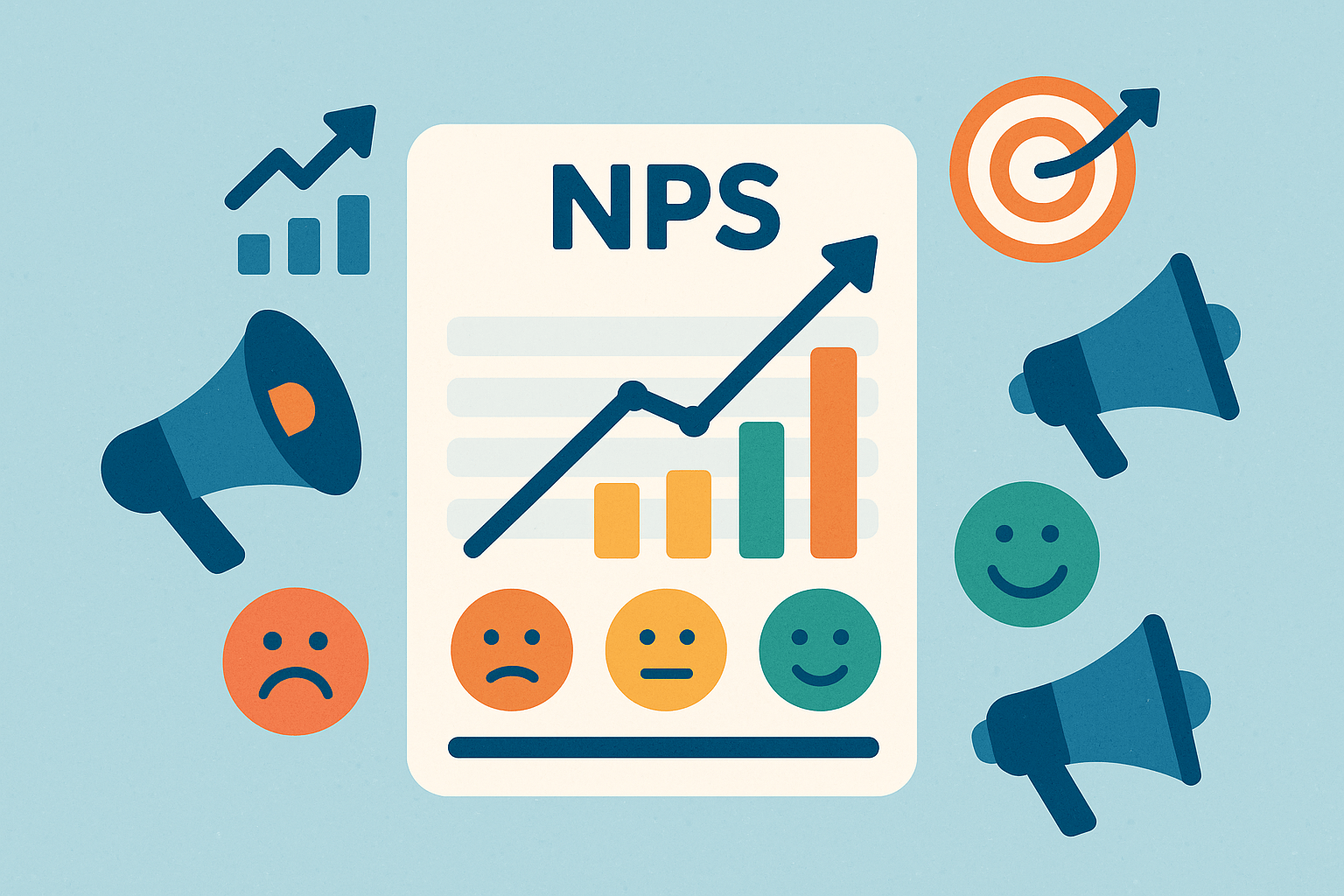Introduction
In today’s hyper-competitive landscape, where customer experience (CX) defines brand success, Net Promoter Score (NPS) is more than just a performance metric. It’s a lens into customer loyalty, brand advocacy, and ultimately, growth. But the question remains: What is a good NPS? And how can it serve as a powerful lever for marketing and CX leaders to foster a customer-first culture?
This blog explores the meaning behind a good NPS, its role in driving marketing-led growth, and actionable strategies to convert scores into sustained customer loyalty and business momentum.
What is a Good NPS?
At its core, NPS asks a simple question: “How likely are you to recommend our brand to a friend or colleague?” Based on responses, customers are classified as:
Promoters (9-10): Loyal enthusiasts who drive word-of-mouth
Passives (7-8): Satisfied but unenthusiastic
Detractors (0-6): Unhappy customers who can harm your reputation
NPS = % Promoters – % Detractors
Interpreting NPS Benchmarks
Above 0: More promoters than detractors; acceptable in competitive sectors
Above 30: Strong loyalty and customer satisfaction
Above 50: Excellent – a clear sign of strong brand advocacy
Above 70: World-class (rare, but achievable by brands like Apple or Tesla)
However, the real value lies not just in what your NPS score is but how you use it. A “good NPS” is one that is improving, contextualized by industry, and linked to tangible outcomes like acquisition, retention, and revenue growth.
NPS as a Marketing Growth Lever
Modern CMOs and growth leaders are increasingly relying on NPS to fuel more than just CX dashboards. Here’s how:
1. Customer-Centric Messaging
Your promoters are your brand’s voice. Analyzing promoter feedback helps marketing craft messaging that resonates with real customers. It also provides social proof for campaigns, websites, and ad copy.
Example: A B2B SaaS brand noticed that promoters frequently praised their “intuitive UI.” The marketing team amplified this message in their campaigns, leading to a 22% uplift in trial sign-ups.
- 2. Referral Campaigns
Brands with a good NPS can launch referral programs backed by loyal promoters. By identifying your most enthusiastic customers, you can activate word-of-mouth growth.
3. Segmented Growth Strategies
Linking NPS scores to customer segments (product line, geography, lifecycle stage) allows personalized outreach.
1. High-NPS segment? Double down with upsell/cross-sell.
2. Low-NPS segment? Prioritize service recovery and retention.
4. Closed-Loop Feedback for Retention
A good NPS is actionable. Following up with detractors not only shows you care but also reduces churn and creates potential promoters.
Building a Customer-First Culture Around NPS
To unlock full value from NPS, organizations must embed it into their culture, not just their dashboards:
CX and Marketing Alignment: Let NPS insights guide both messaging and experience design.
Cross-Department Visibility: Sales, support, and product teams should all access and act on NPS data.
Celebrate Promoters: Share positive feedback internally. It boosts morale and reinforces what works.
Real-Time Response: Use NPS alerts to trigger service or marketing interventions within 24-48 hours.
Why Zykrr Helps You Go Beyond Just “Good NPS”
Zykrr’s AI-powered CXM platform doesn’t just track NPS – it transforms it into growth:
1. Real-time NPS dashboards by segment, geography, or channel
2. Closed-loop automation to reduce detractor churn
3. Voice of Customer insights to fuel content and campaigns
4. Seamless CRM and marketing tool integrations
Zykrr helped a leading fintech improve its NPS from 34 to 56 in just 6 months – while reducing customer acquisition cost by 18% through referral-led campaigns.
Frequently
Asked Questions
-
What is a good NPS score for my industry?
It varies. SaaS may see 30+ as strong. Retail could aim for 50+. Benchmark against your own history and trajectory.
-
Can NPS really impact marketing?
Yes. It provides qualitative and quantitative insights that shape messaging, targeting, and campaign strategy.
-
How often should we measure NPS?
Continuously. Real-time or transactional NPS allows faster feedback loops and quicker response.





















